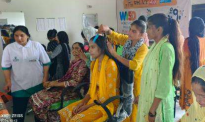Hands-on training is a practical approach to learning that emphasizes real-world experience over theoretical instruction. This method allows individuals to actively engage with tools, equipment, or digital platforms, enhancing their skills through direct application. Unlike traditional classroom learning, hands-on training ensures a deeper understanding of concepts, boosts confidence, and improves problem-solving abilities.
By engaging in practical exercises, simulations, and real-life projects, learners can develop technical expertise in fields such as healthcare, engineering, computer science, renewable energy, and vocational trades. This type of training is particularly beneficial in industries where precision and practical knowledge are essential, such as medical professions, mechanical work, IT, and solar energy installations.
Moreover, hands-on training helps individuals retain information more effectively, as they learn by doing rather than just memorizing facts. It also encourages critical thinking and adaptability, preparing learners to handle real-world challenges with ease. Employers value hands-on experience because it ensures that individuals can apply their knowledge in professional settings without requiring extensive additional training.

